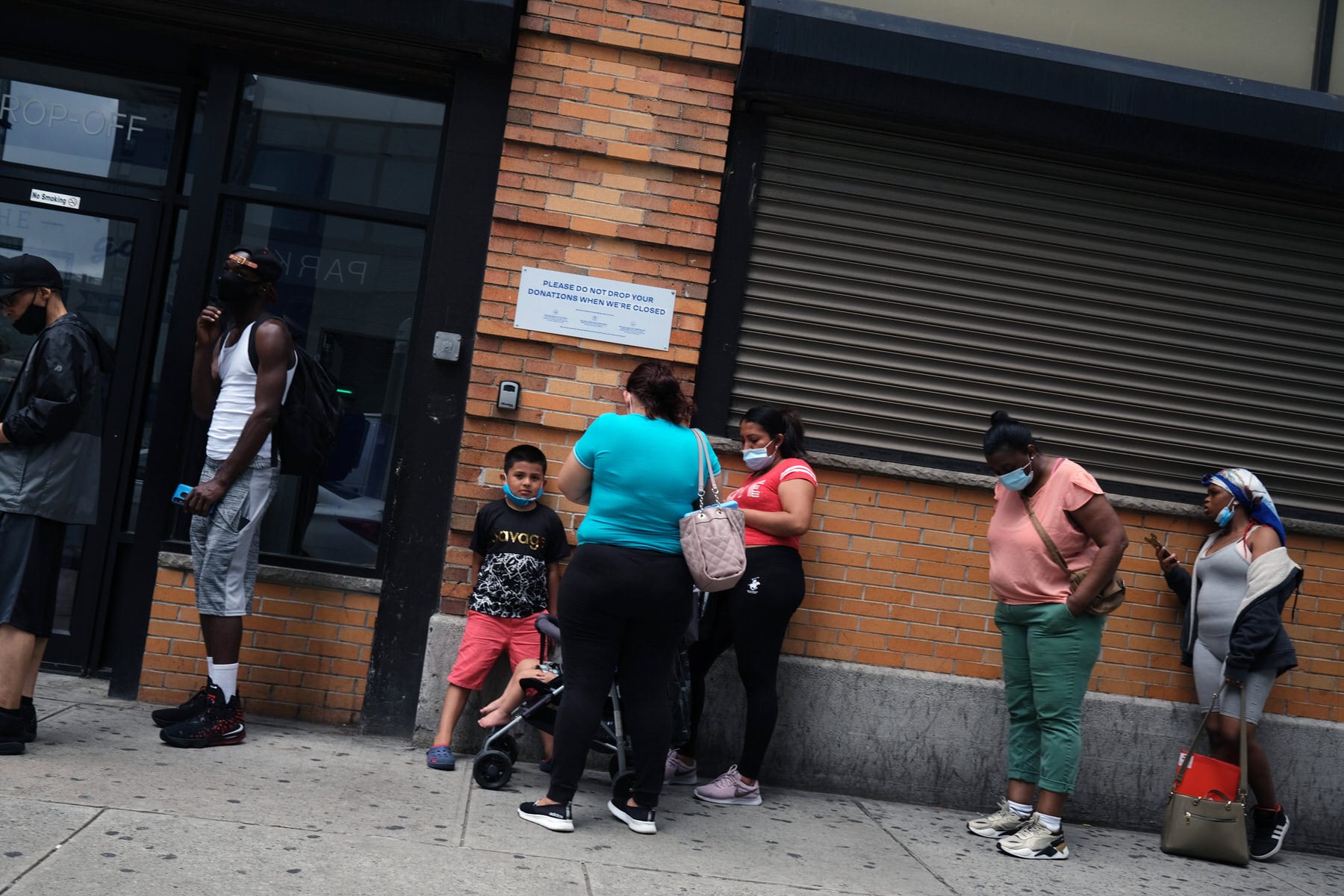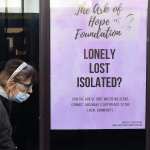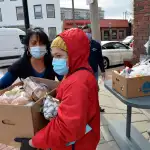A year’s worth of polling and research data analyzed exclusively for The 19th confirms what many are painfully aware of: The pandemic continues to exert a heavy toll on women and LGBTQ+ people.
Economic reports and public health data have made it clear that women have suffered the brunt of the coronavirus recession, and that a pandemic-fueled mental health crisis has disproportionately harmed women and LBGTQ+ people.
Now, this data, collected by Ipsos Public Affairs, builds on that body of evidence and shows just how heavy a burden these groups have faced, highlighting stark racial inequities in who has suffered most.
Women and the economy
For the past year, about two-thirds of Black women and Latinas have consistently reported concern about being able to pay their bills. As of March 1, 66 percent of Black women and 65 percent of Latinas said they were “somewhat, very or extremely concerned” about paying bills compared to about 36 percent of White women.
Many women also report that their household debt has increased because of the pandemic, but again, the burden is unequal. As of January 11 — the last time this question was asked— 21 percent of White women said their household debt had gone up, compared to 30 percent of Black women and 34 percent of Latinas.
“The COVID economy has proven to be much worse for women, which of course has ripple effects long after we’re able to go back to ‘normal,’” said Mallory Newall, a director at Ipsos. “It’s not that all women are having the same lived experience in the pandemic. It’s those women who arguably were more vulnerable before.”
Even now, as unemployment rates have begun to decline for many groups, 58 percent of Latinas and 57 percent of Black women reported feeling worried about their job security. About 35 percent of White women felt the same way.
“That gap is really just widening, and the pandemic has intensified some of the added stressors and added barriers for women of color,” Newall added.
Meanwhile, mothers — who are more likely to have picked up responsibilities like remote schooling and child care — were twice as likely as fathers to say their ability to do their jobs had worsened. As of March 1, 19 percent of mothers reported that to be the case, compared to 10 percent of fathers.
Mental health
Women have been consistently more likely than men to report their mental health has suffered over the past year, Ipsos found — a disparity that also tracked with federal data from the Centers for Disease Control and Prevention, which has indicated consistently higher rates of depression and anxiety for women.
The Ipsos data does not show a substantial difference by races. As of March 1, 25 percent of White women, 22 percent of Latinas and 20 percent of Black women reported their mental health had suffered. Overall, 24 percent of women reported this, compared to 16 percent of men.
Even starker disparities exist between people who are LGBTQ+ and those who are not. It’s a gap researchers had begun to probe, but there has been little data collected in the past year.
On average, between August 21 and December 21, about a third of LGBTQ+ people reported their mental health had declined, compared to about a fifth of people outside of the queer community, according to the Ipsos data. There was not a significant difference across race.
Viral inequities
Research has also suggested that LGBTQ+ people are significantly more likely to have been exposed to COVID-19, a disparity experts link to higher rates of financial hardship.
For transgender people, who already face job-based discrimination at higher levels, the statistics are especially troubling. Research published last summer from the Human Rights Campaign found that 19 percent of trans people had lost their jobs because of the pandemic. For trans people of color, the figure was 26 percent.
Those economic realities may have influenced increased exposure to coronavirus, the Ipsos data suggests.
Between August 21 and December 21, 16 percent of LGBTQ+ people of color reported testing positive for COVID-19, a figure higher than that of LGBTQ+ White people and of straight cisgender people of any race. About 7 percent of White people — LGBTQ+ or not — reported testing positive for the virus. For people of color who were not LGBTQ+, about 11 percent reported a positive COVID-19 test.
Among LGBTQ+ people, those who are Black and Latinx were significantly more likely to report knowing someone who had died from COVID-19 — with 32 percent of Black respondents and 31 percent of Latinx respondents saying they had lost someone, compared to 21 percent of White respondents.
“To fully understand the impact of the pandemic, we not only have to consider race and ethnicity, but sexual orientation and gender identity, and how marginalized communities that already faced employment and health hurdles are continuing to experience those things in the pandemic,” Newall said.






